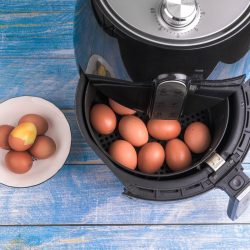Scrambled eggs are usually a simple and easy food to prepare for a crowd. But if you've ever had to make a large batch of scrambled eggs, you may have noticed that they don't always turn out consistently. So why are your scrambled eggs watery, and how can you fix it? We've checked with both cooking and food safety experts on what it means if your eggs are watery.
Scrambled eggs that end up watery can be a simple case of overcooking. Always be sure to cook the eggs at the right temperature, and remove them from heat as soon as they are done. Ingredients added to eggs like milk or vegetables can also add excess water and create soggy eggs. If your eggs are watery in the shell before cooking, that's usually an indication of their freshness.
Keep reading, and we'll explain exactly why scrambled eggs turn out watery when they're overcooked. We'll go over the right way to cook eggs to avoid this common problem. We'll also give you some tips for cooking with milk and vegetables while avoiding overly wet eggs. Then, we'll give you a simple way to fix eggs when you've tried everything else. Finally, we'll go over why uncooked eggs turn watery, and what you need to know.
![Why Are My Scrambled Eggs Watery? [And How To Fix That]](https://kitchenseer.com/wp-content/uploads/2022/04/Why-Are-My-Scrambled-Eggs-Watery-And-How-To-Fix-That-2.png)
Why Are My Scrambled Eggs Watery?
Eggs that cook too quickly over excessively high temperatures can become overcooked. If this happens, water may separate from the eggs.
This condition, which is why your eggs turn out watery, is called weeping. To avoid it, cook your eggs in small batches. This ensures that your eggs cook evenly without certain portions becoming overdone and watery.
In addition, always remove eggs from the pan once they are firm. Even if the heat is turned off, eggs in a hot pan will continue to cook. This can ultimately lead to overcooking and weeping eggs.
What Is The Best Temperature To Cook Eggs?
For scrambled eggs, the ideal temperature is low to medium heat. High heat can lead to overcooked, watery eggs.
If you prefer dry eggs, kick the heat up to medium. If you like your eggs moist, keep the heat lower.
Remember to remove the eggs from heat as soon as they are firm. Otherwise, the eggs may continue to cook from residual heat.
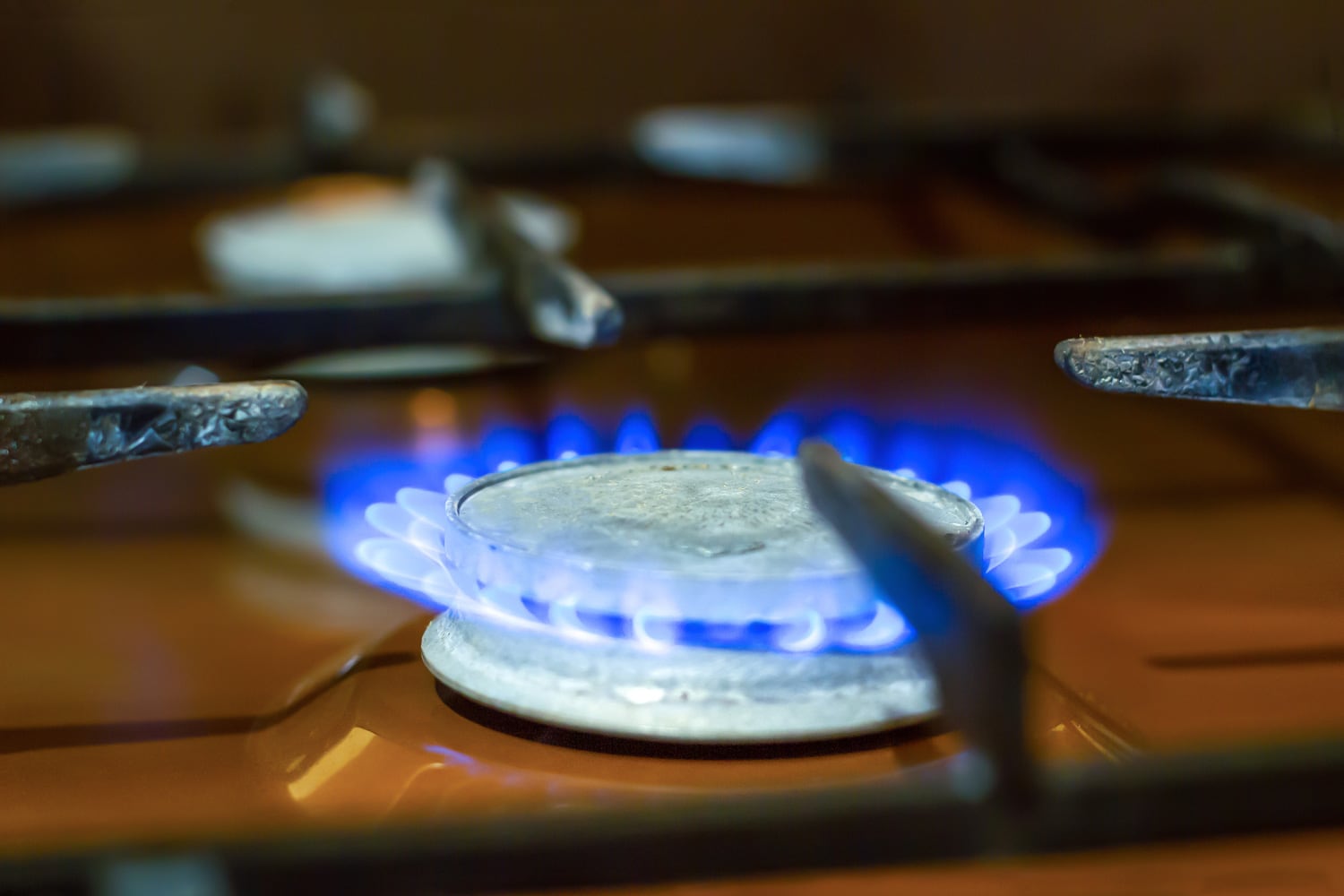
How To Add Vegetables To Eggs
If you're making an omelet, it can be tough to keep watery veggies from drowning out your eggs. Many vegetables have a high water content which can affect how your meal turns out.
It's possible to make a great egg dish with vegetables included. You'll just need to handle and prepare the vegetables carefully.
First, be sure to wash and cut the vegetables to the desired size. And don't forget to pat them dry, a necessary step that's easy to skip.
Next, put the vegetables in before the eggs. Saute the vegetables in a little butter or oil for a few minutes on their own. This will help remove some of the water without just making your eggs soggy.
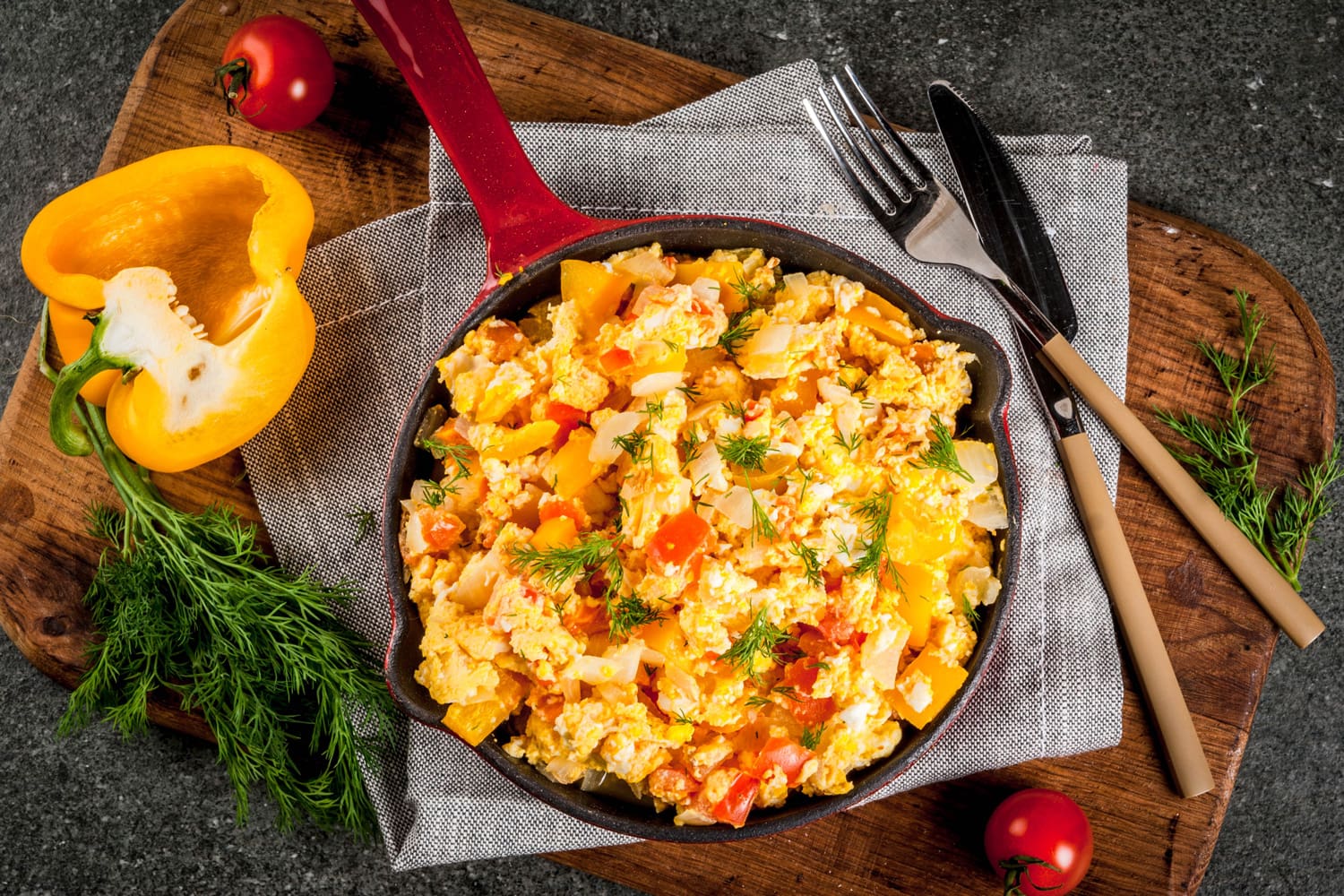
How To Add Milk To Eggs
You can also end up with damp eggs if you add too much milk. Stick to only a tablespoon or two per egg.
Milk is a great way to soften the texture of eggs. But too much can adversely affect the outcome. Instead, just use a little bit in moderation.
How To Fix Watery Eggs With Flour
Tried everything and still getting gooey eggs? Not to worry, as there's still one last sure-fire fix.
Add a teaspoon of flour per each egg, mixing into your scrambled egg mixture. Whether it's overcooked eggs or too many vegetables, adding a bit of flour before cooking will give you perfect eggs every time.
What Causes Watery Eggs When Cracked?
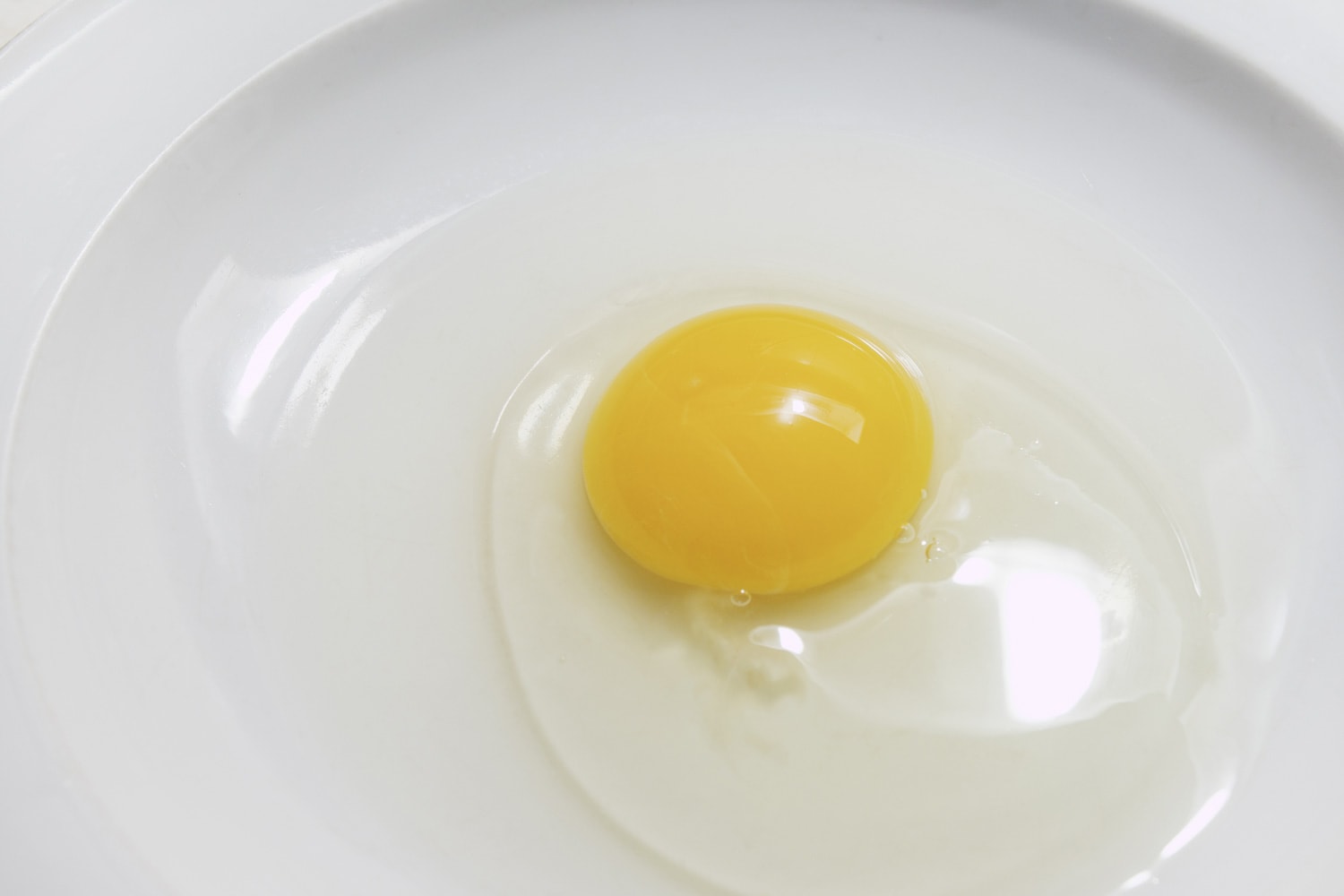
If your eggs are too watery even before cooking, then you have a different problem. This one won't be solved by how you cook the eggs. Instead, chances are that the egg is too old and stale.
Proteins in the egg break down naturally over time. In a very old egg, the yolk and the white no longer have the protein chains necessary to cling together. As a result, the egg starts to get watery and runny.
You can check for old eggs without cracking them by submerging the egg in a glass of cold water. If it sinks, it's fresh. An egg that floats is old. If it's somewhere between, bobbing in the middle of the water, that's a sign that the egg is less than fresh but has not spoiled yet.
Older eggs lose moisture over time. This is then replaced by air. Old eggs that have lots of air are, by default, going to be less fresh than their denser counterparts. But, thanks to all that air, they also float in water.
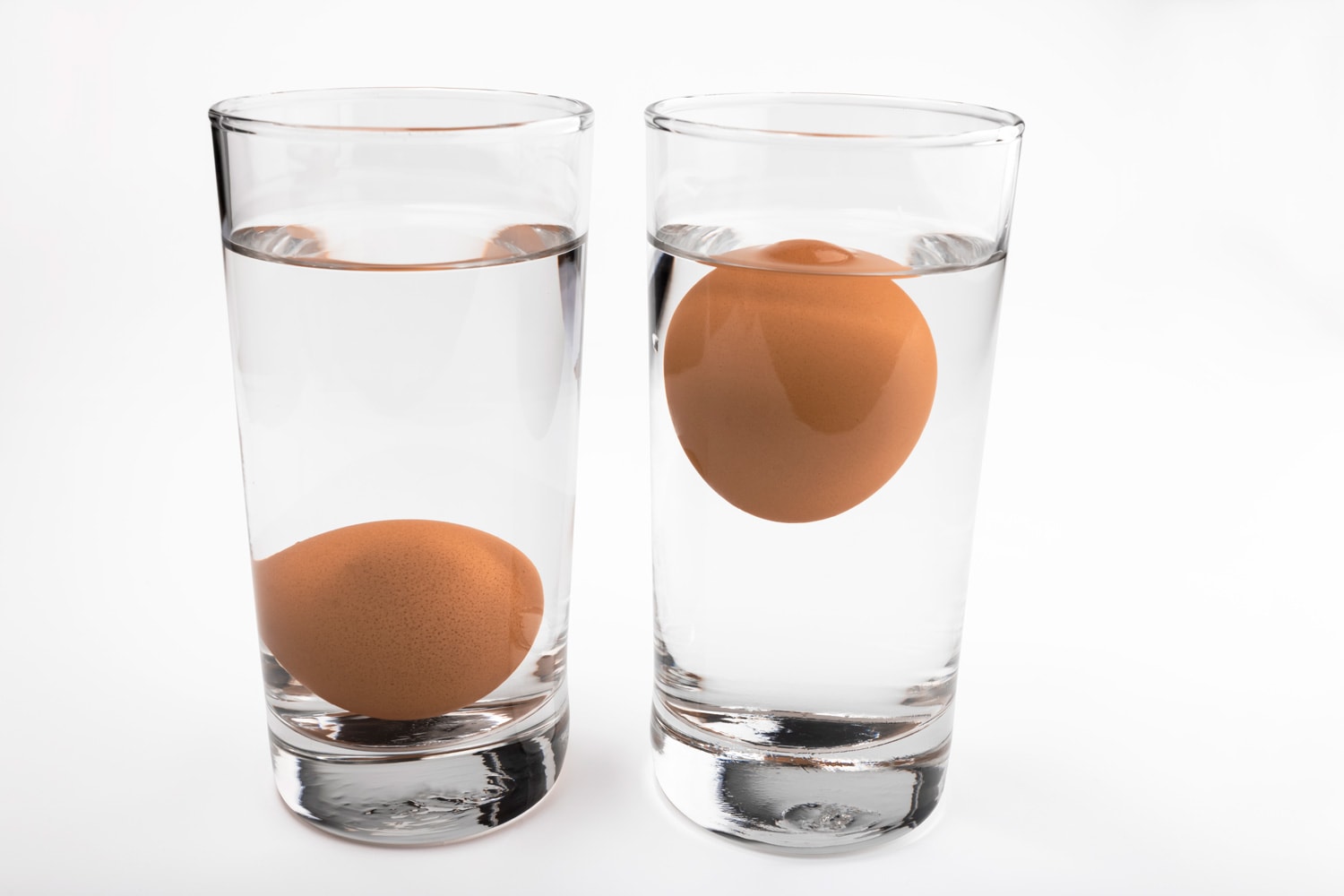
Are Watery Eggs Okay To Eat?
It's important to note that eggs can be watery and no longer fresh but still be safe to eat. Similarly, an egg that doesn't pass the "water test" is not fresh but not necessarily spoiled.
If your eggs are store bought, check the sell-by date to be sure. The egg may still be well within its shelf life. If it's watery but in date and otherwise looks and smells okay, it can still be edible.
However, if you have any doubts about an egg, throw it away. Old eggs can be a source of dangerous bacteria. It's better to be safe than sorry. For this reason, never eat an egg that you suspect has gone bad.
Why Are My Scrambled Eggs Not Fluffy?
So you've learned not to overcook your eggs, but you're still having trouble. Why are your scrambled eggs not fluffy? A few tips that can help:
- Cook the eggs in butter. Oil can sometimes let eggs stick to the pan, which then can cause the eggs to burn.
- Add whipping cream or milk. Just a little—about a tablespoon per egg.
- Remember to stir the eggs. The less you stir, the firmer the eggs turn out. Stir as much or as little as desired depending on whether you like your eggs firm or fluffy.
- Whip the eggs well before cooking. Beat the eggs until combined, but avoid overdoing it. Too much is as bad as too little and will make your eggs tough. The goal is to create air pockets, which you should be able to see in your egg mixture.
- Use the right pan. A nonstick pan is often best and helps keep your eggs from burning. Make sure it's the right size for the number of eggs. Otherwise, it can be hard to cook the eggs thoroughly and evenly.
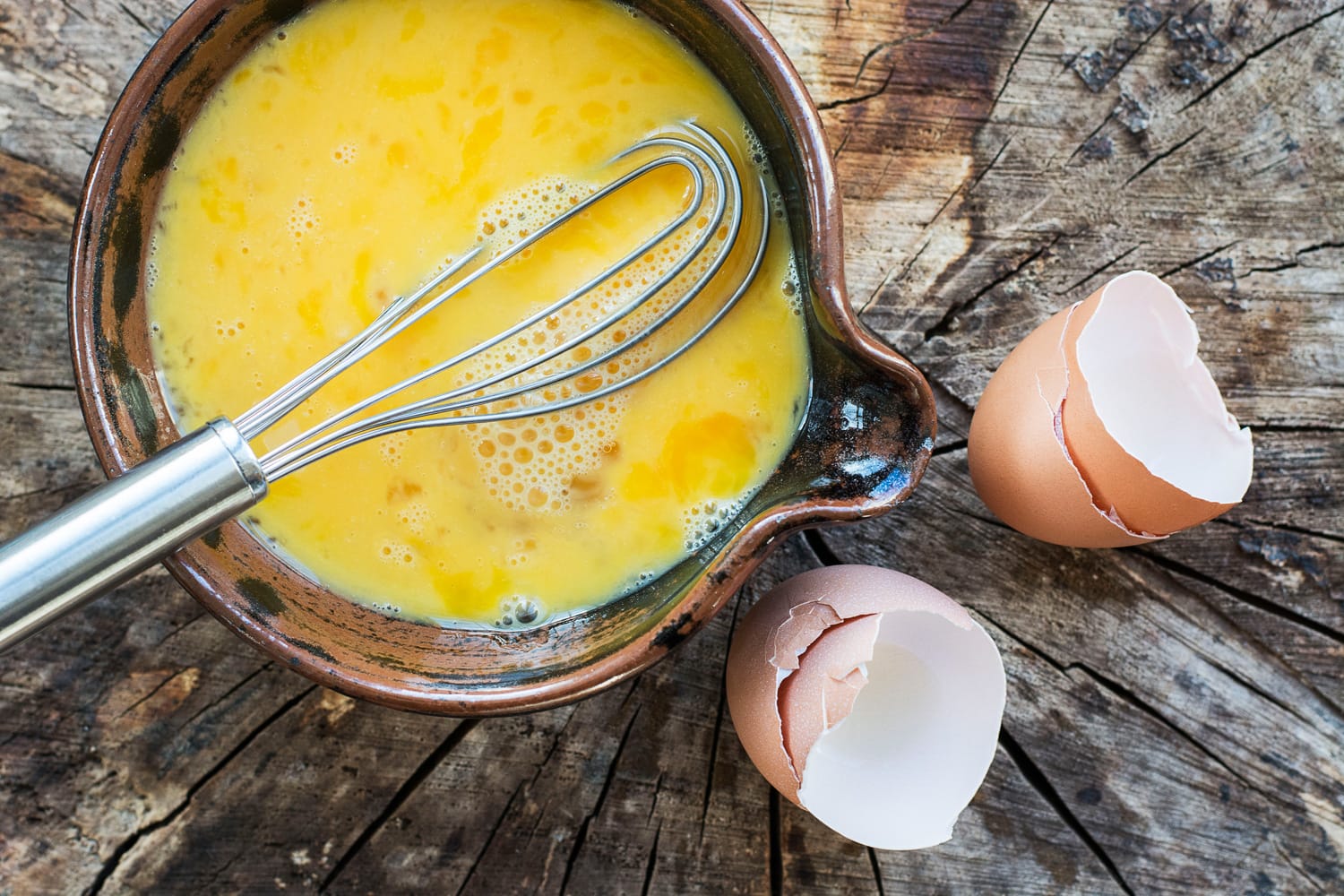
In Closing
If your eggs are watery when they are first cracked, it is typically a sign of freshness. Older eggs begin to have the proteins inside the egg break down, leading to watery eggs.
An egg may be watery and less fresh but still safe to eat. Check the sell-by date on the packaging, or check to see how the egg looks or smells. When in doubt, throw it out.
Eggs that are watery after cooking are often overcooked. Prepare your eggs in low to medium heat, and remove them from the heat as soon as they are firm. It can also be caused by adding too much milk or too many vegetables high in water.
Be sure to dry vegetables thoroughly after washing them, and cook them in the skillet for a few minutes before adding eggs. When all else fails, add a teaspoon of flour per egg to soak up extra moisture.
If you enjoyed this article, try reading these next:
Should You Whisk Scrambled Eggs? [The Secrets You Need To Know!]
Can You Beat Eggs In A Food Processor? [Here's How To]



![A woman Preparing food in her home kitchen, whisking eggs, Should You Whisk Scrambled Eggs? [The Secrets You Need To Know!]](https://kitchenseer.com/wp-content/uploads/2021/08/A-woman-Preparing-food-in-her-home-kitchen-whisking-eggs-250x250.jpg)
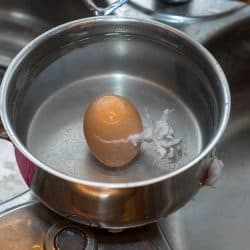
![Close up of hands pouring egg into the bowl of mixer while preparing chocolate cake with poached pears for the holidays, Can You Beat Eggs In A Food Processor? [Here's How To]](https://kitchenseer.com/wp-content/uploads/2021/08/Close-up-of-hands-pouring-egg-into-the-bowl-of-mixer-while-preparing-chocolate-cake-with-poached-pears-for-the-holidays-250x250.jpg)
